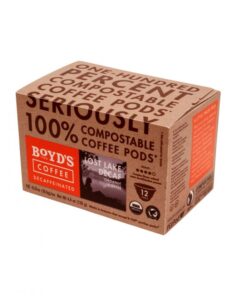When it comes to decaf coffee, which camp do you fall into: Why Bother? Or Why Not? If one of your primary reasons for drinking coffee is the energy boost or focus that you get from it, decaf is probably not in your regular repertoire. But hang on. Before you get too judgy and all, some people love the taste of coffee but for a variety of reasons can’t tolerate the caffeine. For example:
- Health Concerns: Some people choose decaf coffee because of health reasons. Women often avoid caffeine during pregnancy.
- Sleep: Not everyone can slam a coffee after dinner and also get a good night’s sleep, but they still enjoy the experience of a nice cup of coffee after dinner.
- Religious beliefs: Certain religious groups avoid caffeine for personal or spiritual reasons and prefer decaf coffee.
Even if you’re solidly in the Why Bother? camp, you might be interested to know a little more about the decaffeinating process anyway. Maybe one day it won’t be so cringe and you’ll thank us for sharing a little knowledge with you.
There are three main processes for decaffeinating coffee:
- Solvent Process: This is the most common method and involves using solvents such as methylene chloride or ethyl acetate to extract the caffeine from the green coffee beans.
- CO2 Process: In this method, green coffee beans are soaked in pressurized carbon dioxide to extract the caffeine.
- Swiss Water Process: This is a chemical-free method where green coffee beans are soaked in hot water to extract the caffeine, and then the caffeine-rich water is passed through a carbon filter to remove the caffeine.

Here at Boyd’s our Lost Lake coffee is decaffeinated strictly with the chemical-free Swiss Water Process. This full-bodied, dark roast coffee is also 100% organic and Rain Forest Alliance certified. Plus, certified 100% compostable pods so you never have to feel guilty about wanting just that one cup.



